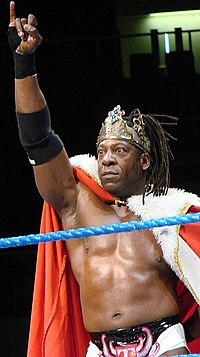Booker T Biography
Born April 5, 1856, Franklin County, Va., U.S.—died Nov. 14, 1915, Tuskegee, Ala. educator and reformer, first president and principal developer of Tuskegee Normal and Industrial Institute (now Tuskegee University), and the most influential spokesman for black Americans between 1895 and 1915.
He was born in a slave hut but, after emancipation, moved with his family to Malden, W.Va. Dire poverty ruled out regular schooling; at age nine he began working, first in a salt furnace and later in a coal mine. Determined to get an education, he enrolled at the Hampton Normal and Agricultural Institute in Virginia (1872), working as a janitor to help pay expenses. He graduated in 1875 and returned to Malden, where for two years he taught children in a day school and adults at night. Following studies at Wayland Seminary, Washington, D.C. (1878–79), he joined the staff of Hampton.
In 1881 Washington was selected to head a newly established normal school for blacks at Tuskegee, an institution with two small converted buildings, no equipment, and very little money. Tuskegee Normal and Industrial Institute became a monument to his life's work. At his death 34 years later, it had more than 100 well-equipped buildings, some 1,500 students, a faculty of nearly 200 teaching 38 trades and professions, and an endowment of approximately $2 million.
Washington believed that the best interests of black people in the post-Reconstruction era could be realized through education in the crafts and industrial skills and the cultivation of the virtues of patience, enterprise, and thrift. He urged his fellow blacks, most of whom were impoverished and illiterate farm labourers, to temporarily abandon their efforts to win full civil rights and political power and instead to cultivate their industrial and farming skills so as to attain economic security. Blacks would thus accept segregation and discrimination, but their eventual acquisition of wealth and culture would gradually win for them the respect and acceptance of the white community. This would break down the divisions between the two races and lead to equal citizenship for blacks in the end. In his epochal speech (Sept. 18, 1895) to a racially mixed audience at the Atlanta (Ga.) Exposition, Washington summed up his pragmatic approach in the famous phrase: “In all things that are purely social we can be separate as the fingers, yet one as the hand in all things essential to mutual progress.”
These sentiments were called the Atlanta Compromise by such critics as the black intellectual W.E.B. Du Bois, who deplored Washington's emphasis on vocational skills to the detriment of academic development.
Born April 5, 1856, Franklin County, Va., U.S.—died Nov. 14, 1915, Tuskegee, Ala. educator and reformer, first president and principal developer of Tuskegee Normal and Industrial Institute (now Tuskegee University), and the most influential spokesman for black Americans between 1895 and 1915.
He was born in a slave hut but, after emancipation, moved with his family to Malden, W.Va. Dire poverty ruled out regular schooling; at age nine he began working, first in a salt furnace and later in a coal mine. Determined to get an education, he enrolled at the Hampton Normal and Agricultural Institute in Virginia (1872), working as a janitor to help pay expenses. He graduated in 1875 and returned to Malden, where for two years he taught children in a day school and adults at night. Following studies at Wayland Seminary, Washington, D.C. (1878–79), he joined the staff of Hampton.
In 1881 Washington was selected to head a newly established normal school for blacks at Tuskegee, an institution with two small converted buildings, no equipment, and very little money. Tuskegee Normal and Industrial Institute became a monument to his life's work. At his death 34 years later, it had more than 100 well-equipped buildings, some 1,500 students, a faculty of nearly 200 teaching 38 trades and professions, and an endowment of approximately $2 million.
Washington believed that the best interests of black people in the post-Reconstruction era could be realized through education in the crafts and industrial skills and the cultivation of the virtues of patience, enterprise, and thrift. He urged his fellow blacks, most of whom were impoverished and illiterate farm labourers, to temporarily abandon their efforts to win full civil rights and political power and instead to cultivate their industrial and farming skills so as to attain economic security. Blacks would thus accept segregation and discrimination, but their eventual acquisition of wealth and culture would gradually win for them the respect and acceptance of the white community. This would break down the divisions between the two races and lead to equal citizenship for blacks in the end. In his epochal speech (Sept. 18, 1895) to a racially mixed audience at the Atlanta (Ga.) Exposition, Washington summed up his pragmatic approach in the famous phrase: “In all things that are purely social we can be separate as the fingers, yet one as the hand in all things essential to mutual progress.”
These sentiments were called the Atlanta Compromise by such critics as the black intellectual W.E.B. Du Bois, who deplored Washington's emphasis on vocational skills to the detriment of academic development.
Booker T
Booker T
Booker T
Booker T
Booker T
Booker T
Booker T
Booker T
Booker T
Booker T
Booker T
Booker T
Booker T
Booker T & Goldust @ 7-11
Booker T. & the MG's-Time Is Tight
Booker T & The MGs "Time is Tight" (live)












No comments:
Post a Comment